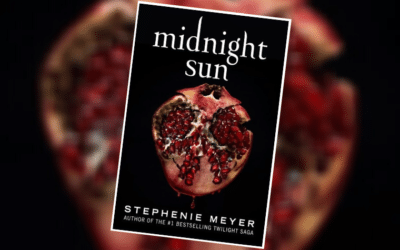There are three kinds of vacation. The first kind, you are an active tourist, seeing things like the Parthenon, the Blue Lagoon, or that bun cha vendor in Hanoi that Tony Bourdain told you about. The second kind, you are stuck in a beach house with your entire family and wondering “If I chase this Corona with an Ativan, will my mother notice?” The third kind, you sit your fat ass at a hotel pool, order $25 rum drinks, and do nothing but read.
I was headed off to Miami for eight days of the third kind, and when I told my dear friend Dave Davy what I was planning to read (B__ L_tt__ L__s and C_mm__w__lth), he said, “No, Amy. No. Don’t read those. Read The Sellout.”
“Amy, are you listening? Read The Sellout!”
Okay, Dave. Fine! Plus, reading The Sellout would help me check off another box on Book Riot’s Read Harder Challenge, the list aimed at white cis people who know gentrification is bad but secretly love it because their new neighborhood has a West Elm and a legit taco stand. Fake mid-century furniture and authentic Mexican. Bless your hearts.

I tried to explain the plot of Paul Beatty’s The Sellout to the woman sitting beside me at the pool, and in the middle of my description, I realized I sounded like Dolores Umbridge with a sprinkling of Dianne Feinstein. So to prevent further mortification, I will just quote from Beatty’s publisher.
A biting satire about a young man’s isolated upbringing and the race trial that sends him to the Supreme Court, Paul Beatty’s The Sellout showcases a comic genius at the top of his game. It challenges the sacred tenets of the United States Constitution, urban life, the civil rights movement, the father-son relationship, and the holy grail of racial equality—the black Chinese restaurant.
Born in the “agrarian ghetto” of Dickens—on the southern outskirts of Los Angeles—the narrator of The Sellout resigns himself to the fate of lower-middle-class Californians: “I’d die in the same bedroom I’d grown up in, looking up at the cracks in the stucco ceiling that’ve been there since ’68 quake.” Raised by a single father, a controversial sociologist, he spent his childhood as the subject in racially charged psychological studies. He is led to believe that his father’s pioneering work will result in a memoir that will solve his family’s financial woes. But when his father is killed in a police shoot-out, he realizes there never was a memoir. All that’s left is the bill for a drive-thru funeral.
Fueled by this deceit and the general disrepair of his hometown, the narrator sets out to right another wrong: Dickens has literally been removed from the map to save California from further embarrassment. Enlisting the help of the town’s most famous resident—the last surviving Little Rascal, Hominy Jenkins—he initiates the most outrageous action conceivable: reinstating slavery and segregating the local high school, which lands him in the Supreme Court.
You can’t be funny if you aren’t smart, and Paul Beatty is funny. The narrator “Bonbon” Me comes at you rapid fire. Bonbon’s is like Selina Meyer on a mix of Red Bull, spring sunshine, and Sudafed. He never lets up, and you have to pay attention to every sentence. Not a single utterance is wasted. I had to cool it with the piña coladas because the Myer’s Rum floater was messing with my reading comprehension.

The satirical world of Dickens stings because, like all good satire that calls out bad things, it could almost be true. But for me, the most important thing for a book is that it sucked me in. When I read, I want to be absorbed. This story did more than that. It masticated me for two days and then swallowed me. I’m still waiting to be crapped out; I’m still in the story. (This is not a complaint.)

The Sellout is the opposite of smarm because Paul Beatty is honest. Smarm obfuscates, but The Sellout does not flinch; it always goes there. White people prefer to discuss race in way that doesn’t make us squirm. Race discussions should be polite. We apply the rules of Emily Post to race conversations: always make the other person comfortable. Beatty doesn’t care about your comfort, and I respect the hell out of it. I mean, I avoided telling you about what this book on race is about.
The only place white people want you to be uncomfortable is on a damn airplane. We can’t even talk about leggings on an woman (or on a child) in a sane way. We police speech like we police women’s clothing and bodies. Oh, you had to wear a hairshirt and control-top pantyhose on a United pass so everyone should, too? Okay, got it. I’m Team Leggings, obvi, but I’m off-topic…
While reading, every other page, I would gasp and literally (like, literally) throw my hand over my mouth. The sharpness of the writing, the perfect skewering insight (again) literally moved me. My boyfriend asked if I were reading a scary book. Maybe?

If you are a book snob (I’m looking at you, Katy Grace, pusher of MM dino romance), you will be happy to hear that The Sellout won Paul Beatty the Man Booker Prize. He is the first American to do that. Beatty did what Trump can never do: Make America Great Again™!
The Sellout: A Novel by Paul Beatty




